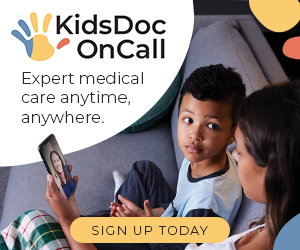By Dr Sandy Hopper
Let’s not sugar coat it; a pandemic is scary and even more so for children exposed to negative headlines throughout social media. There’s no doubt COVID is slowly making its way through our community, but because of the high vaccination rates in Australia we are in a great position to weather this storm. For almost all kids, covid….will be a mild illness – some minor cold-like symptoms along with aches, pains and tiredness. Older people, and those with vulnerable health, can get very sick, but for our kids, serious illness is uncommon.
So how do you talk to your kids about COVID when they are bombarded with daily case numbers, stories about deaths, reports our health system is overwhelmed and evidence of the huge wait for testing?
Firstly, your kids will always look to you for how they respond. So, the starting point is being very aware of how you feel, how you look, how you act and what you do.
Your own response is very powerful in how your kids adjust to the pandemic and its changing stages. Establish your own routine, and merge this into a family routine. If, for instance, exercise opportunities have changed, find out what works best for your family and do this with your kids. Keep to regular meal times. Let them know what is coming up. Carve out time to just be with each other. And also carve out unstructured time where they can play and just be kids.
At KidsDocOnCall, one of Australia’s leading video telehealth platforms, I see lots of children who have tested positive. Their stress and worry comes through the screen. Luckily, most of the children are fine and all the parents need to do is provide good, solid supportive care. After encouraging their child to drink fluids, and helping them with an over-the-counter pain and fever medicine, the kids generally pull through this illness pretty smoothly. And don’t forget lots of cuddles and their favourite food! As paediatricians we also keep a close eye on how the adults are travelling. Happily, most show a gritty resolve and resourcefulness that I can only admire.
However, I have seen kids becoming phobic about germs, causing obsessive hand washing and a fear of seeing other people. This leads to isolation, so you, as the parent, need to tread a fine line between being careful and normalising sensible infection control. Do not over-emphasise its need (Charlotte! Wash your hands or you could die!). Instead, just reinforce good control (Charlotte, remember to wash your hands as we have been out/we are about to eat dinner.) You know your kids best and what they will respond to.
Here are my top tips for talking to your kids about COVID.
- Don’t cover it up or make it the unknown “bogeyman”. This will make it more frightening. When you talk about it, use language that works for them. You can say that most kids get through COVID with no problems – it’s like a cold or a cough. They’ll recover and be fine.
- Limit their exposure to social media – I like to call it doom scrolling – and watch the 6pm television news with them so you can explain the more worrying aspects.
- Empower your children with practical items to keep them safe – hand gel and masks – and encourage them to wash and gel their hands many times during the day. Do the same, and this will make it normal and uncontroversial. Turn elbow bumps rather than hugs or handshakes into a game and they will love to do them.
- Look after yourself, keep your routine and when you can, model resilience and calm. And be kind to yourself and your family. You don’t have to be perfect; you just have to be good enough.
- Always remember you are the role model; eat well, empower your children with practical help and decrease the doom scrolling. If you need help just ask for it.
- And of course, make sure everyone who is eligible is vaccinated and up to date!

Associate Professor Sandy Hopper, a Paediatric Emergency Medicine Physician, is the Chief Medical Officer and co-founder of KidsDocOnCall, a 24/7 national children’s medical telehealth service. He is also Associate Professor of Paediatrics at the University of Melbourne. The dad of two teenage boys understands the stresses of parenthood and is driven to helping Australian children lead their happiest and healthiest lives. Find out more at kidsdoconcall.com.au or download the app.







